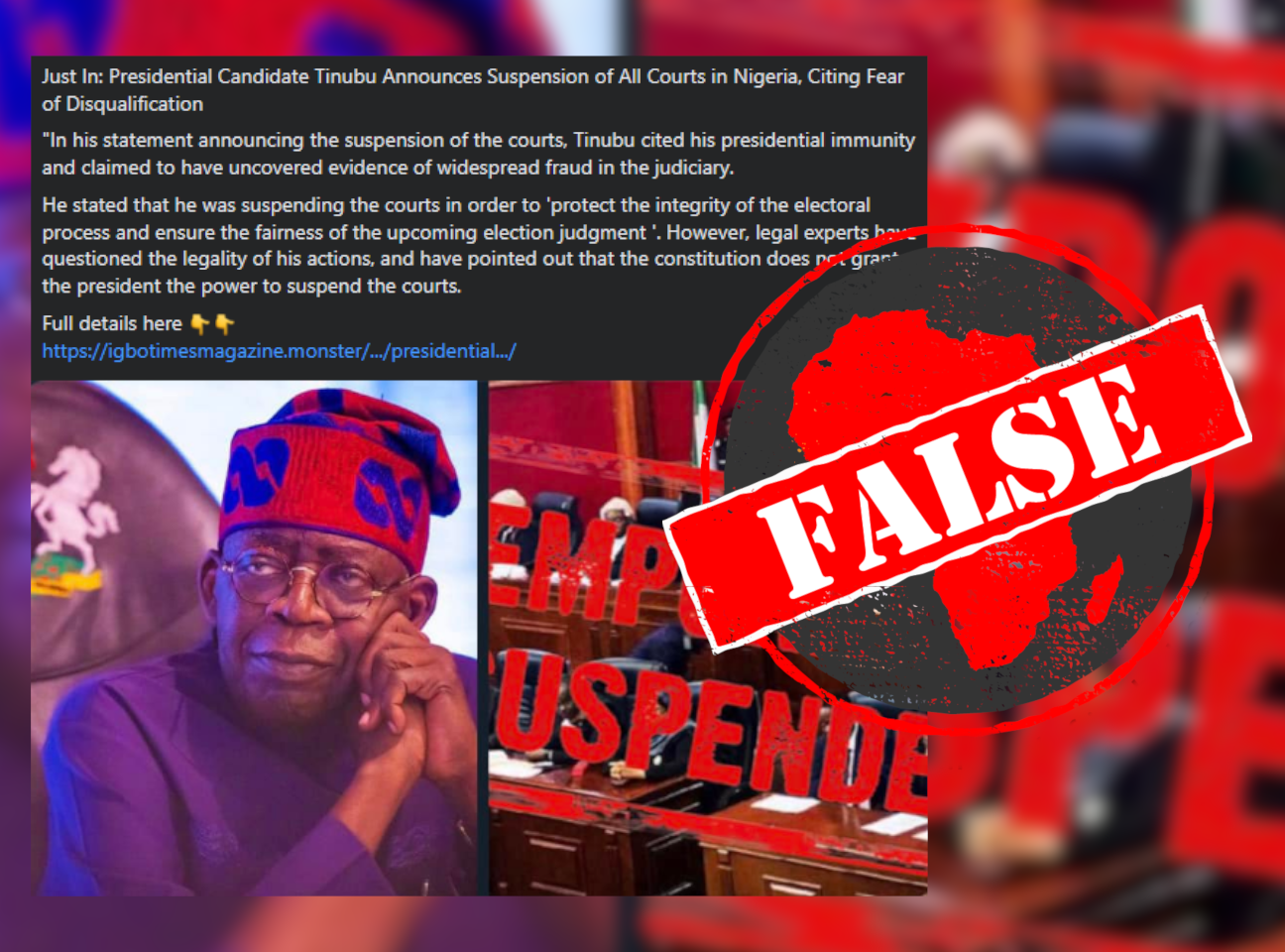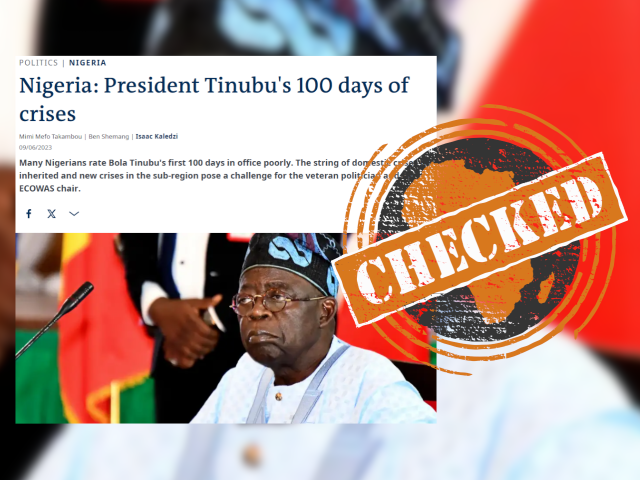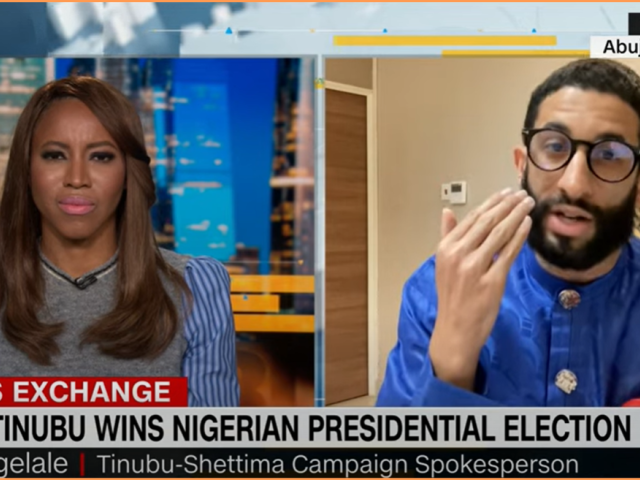IN SHORT: Facebook posts claim that Nigerian president Bola Tinubu has suspended all courts in the country over fear of disqualification. But there are no news reports of this in any credible news platforms in the country.
“Just In: Presidential Candidate Tinubu Announces Suspension of All Courts in Nigeria, Citing Fear of Disqualification,” reads a post on Facebook.
The 26 July 2023 post says, in part: “He stated that he was suspending the courts in order to ‘protect the integrity of the electoral process and ensure the fairness of the upcoming election judgment’.”
Bola Tinubu was elected president in Nigeria’s 25 February 2023 general election. His victory was met with stiff opposition from Atiku Abubakar and Peter Obi, who came second and third in the polls.
The post has a link that takes readers to a website called Igbo Times Magazine.
It has attracted likes and a few comments, with one of them calling for “rebellion” in the country.
Similar posts are found here and here.
But is the claim true? We checked.

False news
The suspension of the court of law would be very big news in a democracy. That alone is reason enough to doubt the credibility of this particular claim.
Africa Check searched credible news platforms across the country for reports on the suspension of the courts and found nothing like it.
On legal challenges against Tinubu’s victory, a 1 August report on the court processes said that the presidential election petition tribunal was expected to deliver its verdict before the end of September.
The judiciary, in a constitutional democracy like Nigeria, is not under the direct control of the president. This arm of government preserves the rule of law and is independent and impartial, according to Nigeria’s 1999 amended constitution.
Republish our content for free
For publishers: what to do if your post is rated false
A fact-checker has rated your Facebook or Instagram post as “false”, “altered”, “partly false” or “missing context”. This could have serious consequences. What do you do?
Click on our guide for the steps you should follow.
Publishers guideAfrica Check teams up with Facebook
Africa Check is a partner in Meta's third-party fact-checking programme to help stop the spread of false information on social media.
The content we rate as “false” will be downgraded on Facebook and Instagram. This means fewer people will see it.
You can also help identify false information on Facebook. This guide explains how.




Add new comment